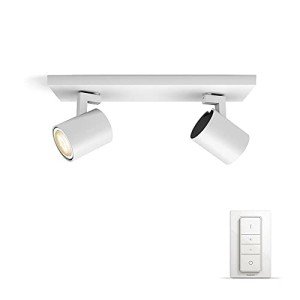10 Times You'll Have To Be Educated About Buy Wall Lights UK
The Ultimate Guide to Buying Wall Lights in the UK
Wall lights are not only practical elements in a home; they likewise serve as necessary elements of interior style. With Lighting And Lamps to illuminate dark spaces, produce ambience, and enhance the aesthetic appeal of your spaces, wall lights have become significantly popular among property owners and designers alike. This short article offers an in-depth look into the considerations, designs, types, and benefits of wall lights in the UK, making it simpler for you to pick the best fixtures for your home.
Why Choose Wall Lights?
Wall lights provide various benefits that make them a preferable alternative for home lighting:
- Space-Saving: Unlike floor lamps or table lamps, wall lights do not occupy floor space, offering you more room for other furnishings.
- Versatility: Available in various designs, sizes, and surfaces, wall lights can fit seamlessly into any room, from contemporary kitchens to vintage-themed living spaces.
- Ambient Lighting: Wall lights can produce a warm and inviting atmosphere, making them perfect for locations such as bedrooms, corridors, and dining-room.
- Task Lighting: They are outstanding for focused lighting over jobs such as reading or cooking.
Types of Wall Lights
When purchasing wall lights, it's necessary to consider your requirements and style choices. The following table highlights a few of the most common types of wall lights available in the UK:
Type of Wall Light
Description
Ideal Locations
Sconces
Decorative fixtures that can add style and style to a wall.
Living rooms, corridors
Image Lights
Created to light up artwork or photos, boosting visual interest.
Galleries, home workplaces
Wall Washers
Fixtures that project light onto walls, creating a soft radiance and atmosphere.
Living locations, bedrooms
Swing Arm Lights
Adjustable lights that can be relocated to various positions for directed lighting.
Reading nooks, desks
Flush or Semi-Flush Mounts
Near the wall, providing broad, even lighting without taking up space.
Corridors, staircases
Key Considerations When Buying Wall Lights
1. Design and style
The design of your wall lights should complement your overall interior decoration. Whether you choose modern, traditional, rustic, or industrial styles, consider the following:
- Material: Options include metal, wood, plastic, or glass.
- Color: Think about the color scheme and how the light's color fits with your existing decoration.
- Forming: From geometric forms to traditional styles, the shape of the component can dramatically affect the visual.
2. Function and Functionality
Figure out the function your wall lights will serve.
- Ambient Lighting: Choose fixtures that offer a soft glow throughout the room.
- Task Lighting: Select adjustable or focused fixtures for particular activities.
- Accent Lighting: Use decorative fixtures to highlight artwork or architectural features.
3. Size and Scale
Guarantee the size of the wall light is suitable for the area.
- Match to Room Size: Larger rooms might require bigger fixtures, while smaller spaces gain from compact designs.
- Spacing: When setting up numerous wall lights, preserve even spacing to develop a cohesive look.
4. Installation and Maintenance
Think about the ease of setup and upkeep.
- Hardwired vs. Plug-in: Hardwired fixtures often look more polished, while plug-in choices are much easier to install.
- Upkeep Needs: Choose products that are simple to tidy and keep to prolong the life of the lights.
5. Energy Efficiency
Integrating energy-efficient lighting is important for both sustainability and cost-effectiveness. Look for:
- LED Options: These take in less energy and have a longer life expectancy.
- Dimmable Features: Fixtures with dimming capabilities enable more control over the light intensity.
Popular Wall Light Styles in the UK
The UK market offers a diverse series of wall light designs. Here are some popular options to think about:
- Vintage and Retro: Featuring ornate styles, typically with brass surfaces, ideal for period homes.
- Modern Minimalism: Clean lines and easy structures lend a contemporary feel, ideal for modern interiors.
- Industrial Chic: Utilising products like metal and glass, really popular in metropolitan and loft-style homes.
- Scandinavian: A focus on performance and simplicity with natural products and soft shades.
- Art Deco: Luxurious styles with geometric shapes, perfect for including a touch of glam.
Frequently Asked Questions (FAQs)
Q1: What is the typical price range for wall lights in the UK?
A1: Wall lights can differ commonly in rate, typically varying from ₤ 15 for more standard choices to over ₤ 200 for designer or premium fixtures.
Q2: Can I install wall lights myself?
A2: If you have basic electrical knowledge, you can install wall lights yourself. Nevertheless, employing an expert electrician is recommended to make sure security and compliance with policies.
Q3: Are wall lights appropriate for outdoor usage?
A3: Yes, there are particular wall lights created for outdoor setups, typically made with weather-resistant products. Be sure to examine for IP ratings to guarantee viability for outdoor use.
Q4: What type of bulb is best for wall lights?
A4: LED bulbs are suggested due to their energy effectiveness, longevity, and low heat output, making them ideal for numerous wall light.
Q5: How high should wall lights be set up?
A5: Generally, wall lights need to be set up between 150cm to 180cm from the floor, however it may differ depending upon individual choice and the particular room's function.
Wall lights have the power to enhance the comfort, mood, and design of any living area. By considering the types, styles, and practical aspects laid out in this guide, individuals aiming to buy wall lights in the UK can make educated decisions. Eventually, the best choice will brighten your home in more methods than one, turning simple lighting into an elegant upgrade that boosts your living environment. Whether repurposing old fixtures or buying new styles, wall lights are a flexible option worth considering.
